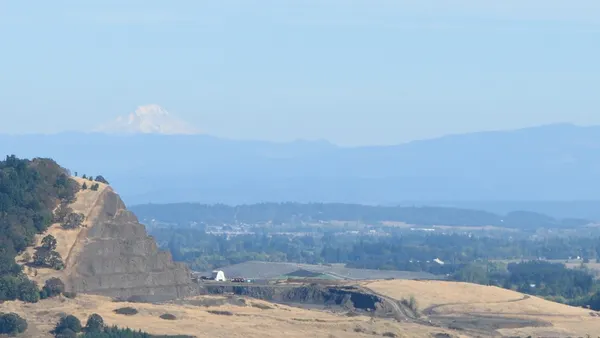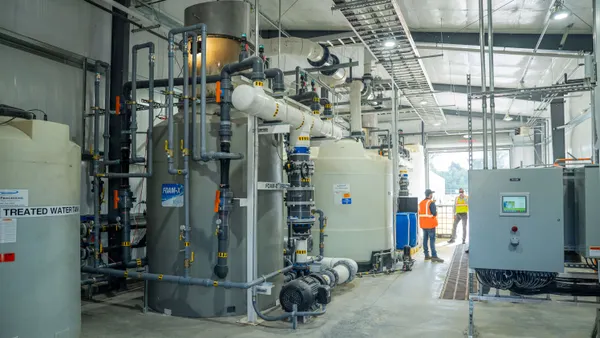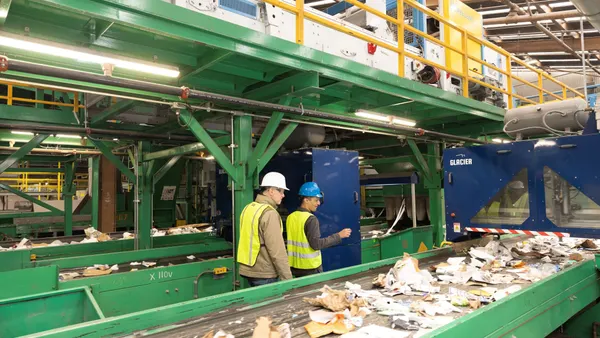Dive Brief:
- Waste Management of Pennsylvania Inc. submitted a plan with the state Department of Environmental Protection and U.S. Environmental Protection Agency for a pilot program to discharge untreated leachate from its River Road landfill that closed in 1986 into the Shenago River. The polluted water from the landfill is currently pumped into sewer lines and treated at the Sharon sewage treatment plant along with municipal waste.
- Glenn Schultz, Waste Management’s senior project manager for the landfill, said the company would stop pumping leachate for treatment for two years while monitoring effects on the river. "The chemistry will speak for itself," Schultz said. "If we need to reactivate the system, that’s what we’ll do."
- EPA's Bonnie Smith said the agency, which has been working on the plan with Waste Management for two years, has set no time frame for a decision. Waste Management also would have to get a federal permit from the National Pollutant Discharge Elimination System to release water into public waterways.
Dive Insight:
Sharon Sanitary Authority manager Guy Cunningham opposes the plan. "As consumers, we don't want to have leachate going into the river above the intakes of the Aqua plant that treats our drinking water," he told the Herald.
Jim Willard, Aqua’s area manager, said the 1,300 gallons of water Waste Management is seeking to discharge every day is a fraction of the 55 million gallons daily that flows downstream from Shenango River Lake and tributaries of the river below the dam.
Waste Management pays both the Sharon and Upper Shenago sanitary authorities, and both would lose revenue if treatment is bypassed. "It really isn't about the revenue," Cunningham said.
Under the landfill closure agreement, the Sharon plant tests the River Road discharge for metals, polychlorinated biphenyl compounds (PCBs) and volatile organic compounds. EPA says the most important are cadmium and zinc. During the years the landfill was operating, area manufacturers produced PCBs from the manufacture of electrical transformers and trichloroethylene that was used to clean grease from metals. The site was removed from the Superfund list in January 2004. In its most recent review in September 2014, EPA said it has found that required processes at the site "remain protective of human health and the environment."
EPA's Smith said, "There are reports going back and forth between the agencies to make sure that if we make a decision to go ahead that we have all the science we need and information about the water and sediments before we would begin a pilot which would include very specific standards for monitoring. We’re taking it seriously because we want the Shenango River to remain at least at the quality it is now."









